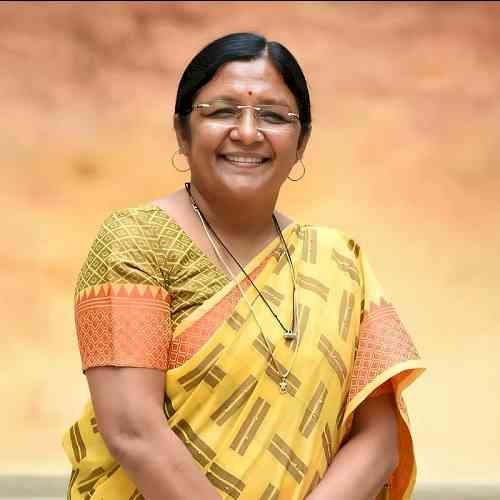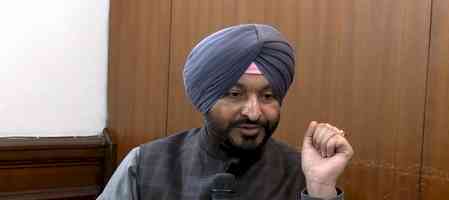Empowering Women through Education: The Legacy of Savitribai Phule
Teacher’s Day is a sacred occasion to honour those who shape the destiny of our nation through knowledge. On this day, it is only fitting that we recall the extraordinary contributions of Savitribai Phule (1831–1897), the first female teacher of India and a revolutionary reformer who challenged age-old prejudices to lay the foundation for women’s education in our country.

Teacher’s Day is a sacred occasion to honour those who shape the destiny of our nation through knowledge. On this day, it is only fitting that we recall the extraordinary contributions of Savitribai Phule (1831–1897), the first female teacher of India and a revolutionary reformer who challenged age-old prejudices to lay the foundation for women’s education in our country.
At a time when the education of women was frowned upon and often violently opposed, Savitribai Phule, alongside her husband Mahatma Jyotiba Phule, opened schools for girls in Pune in 1848. She not only taught but also designed curricula and wrote poetry to inspire women to seek knowledge. Her life was a testament to courage—walking daily to school with a spare sari because orthodox men hurled mud and stones at her. Yet she persisted, because she knew that the future of India lay in the education of its daughters.
The Legacy of Reformers and the Call of Equality
Savitribai Phule was not alone in her struggle. India’s journey of social reform has been guided by visionaries like Raja Ram Mohan Roy, who campaigned against sati, child marriage and for women’s education; Ishwar Chandra Vidyasagar, who championed widow remarriage and girls’ education; and later leaders like Mahatma Gandhi, who emphasised “the education of women is the most powerful agent of social change.” Each of these reformers believed that without empowering women through education, India could not achieve true freedom.
This legacy continues to shape modern India’s aspirations. Prime Minister Narendra Modi has often emphasized that ‘India’s development journey will be led by women-led development.’ The vision of Viksit Bharat@2047 is anchored in the empowerment of women as equal partners in nation-building, with education serving as the foundation of this empowerment.
Women and Education: The Progress So Far
The progress since independence has been remarkable. Female literacy, which was barely 8.86% in 1951, has today risen to 65.46% (Census 2011) and continues to improve with recent surveys indicating higher enrolment of girls in schools. According to the Unified District Information System for Education (UDISE+) 2021–22, the Gross Enrolment Ratio (GER) of girls at the elementary level is now higher than that of boys.
Schemes of the Modi government, such as Beti Bachao Beti Padhao, launched in 2015, have shifted social attitudes, improved the child sex ratio, and increased enrolment of girls at every level of schooling. Initiatives like Poshan Abhiyan, Mission Shakti, and SAMARTHYA provide a holistic framework—ensuring that education is supported by nutrition, safety, and opportunity. As per UDISE+ 2024-25 data, for the first time, female teachers now constitute 54.2 percent of the total school teachers in India, a notable rise from 46.9% in 2014–15.
In a historic step, the Ministry of Women and Child Development has renamed the National Institute of Public Cooperation and Child Development (NIPCCD) as the Savitribai Phule National Institute of Women and Child Development (SPNIWCD). This institute plays a vital role in capacity building, training, and research to strengthen programmes related to women and children, ensuring that policies translate effectively into action on the ground.By carrying Savitribai Phule’s name, the institute stands as a living tribute to her vision of women’s empowerment through education and reform.
Yet challenges remain.Dropout rates among girls tend to rise at the secondary level, driven by early marriage, safety concerns, and economic pressures. The government is committed to addressing these through scholarships, residential facilities, menstrual hygiene initiatives, and digital learning opportunities to ensure that every girl continues her education uninterrupted.
Teachers as Nation-Builders
The role of women teachers is particularly significant. They carry forward Savitribai Phule’s torch by not only imparting knowledge but also becoming role models for millions of young girls. Studies show that in rural areas, the presence of women teachers increases the enrolment and retention of girls in schools. Their contribution is critical to breaking cycles of poverty and empowering families to aspire for a better future.
On Teacher’s Day, we celebrate not just the profession but also the larger vision it represents—knowledge as liberation, education as empowerment, and teaching as nation-building.
Towards Viksit Bharat
As India marches towards the vision of becoming a developed nation by 2047, education remains the key driver of growth. Women’s education, in particular, multiplies the impact: educated women ensure better healthcare, lower infant mortality, higher family incomes, and stronger communities. According to UNESCO, every additional year of schooling for a girl increases her future earnings by 10–20%.
Therefore, the Ministry of Women and Child Development continues to align its schemes with SDG 4 (Quality Education) and SDG 5 (Gender Equality), ensuring that no girl is left behind. By integrating education with nutrition, safety, and skill development, we are building an ecosystem where women can thrive as students, teachers, entrepreneurs, and leaders.
A Collective Resolve
The story of Savitribai Phule reminds us that true progress is born of courage. From her modest classroom in Pune to the classrooms of modern India where crores of girls learn every day, the journey reflects a profound transformation in society’s outlook toward women and learning. But the mission is not yet complete.
As we celebrate Teacher’s Day, let us rededicate ourselves to her vision and the call of our Prime Minister—that women’s empowerment is not a matter of welfare but of national strength. By ensuring that every girl is educated, every woman is empowered, and every teacher is honoured, we can build the India of our dreams.
Savitribai Phule’s legacy is not just history—it is a living guide for our present and a beacon for our future. In the light of her courage, we see the path to Viksit Bharat, a developed India led equally by its daughters and sons.
Author:
Savitri Thakur
Minister of State for Women and Child Development
Govt. of India



 City Air News
City Air News 








